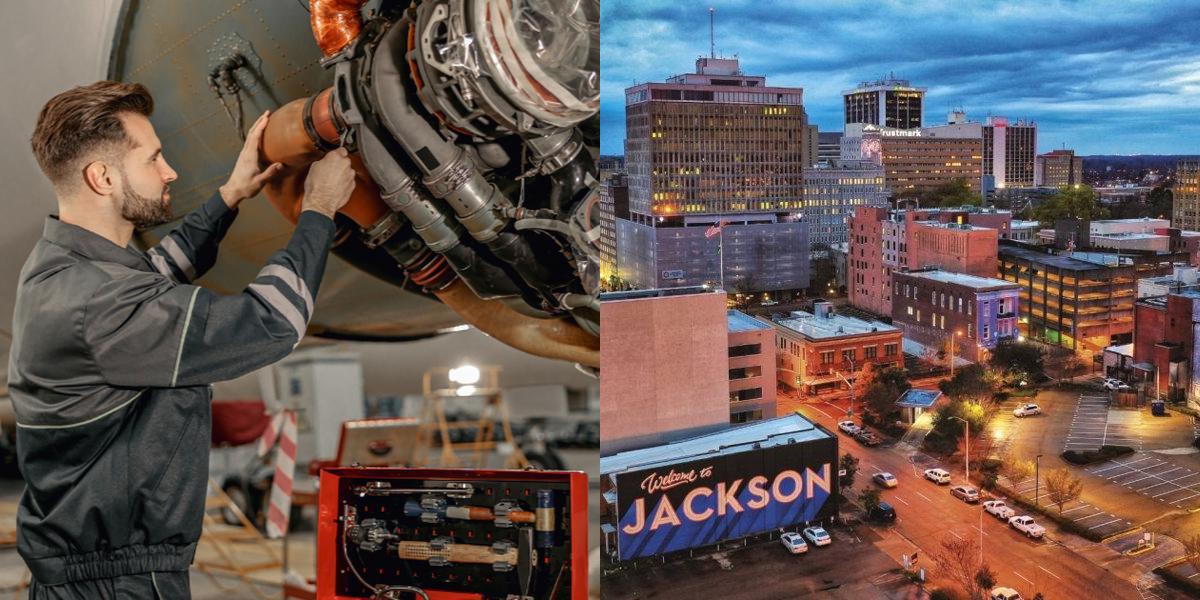How to Become an Aviation Mechanic in Mississippi

Aviation mechanics, also known as aircraft mechanics or aviation technicians, are professionals responsible for inspecting, maintaining, and repairing aircraft to ensure their safety and functionality. They play a crucial role in the aviation industry by keeping airplanes in optimal condition.
How do I get a job as an Aviation Mechanic?
Once you have obtained your aviation mechanic certification, the next step is to find a job in the field. Here are some tips to help you get started:
-
Build a strong resume: Your resume is your first opportunity to make a good impression on potential employers. Highlight your education, certification, and relevant work experience. Include any specialized skills or areas of expertise that may set you apart from other candidates.
-
Network: Networking is a crucial part of any job search. Attend industry events, join professional organizations, and connect with others in the aviation industry. Building relationships with professionals already working in the field can lead to job opportunities and valuable insights.
-
Search for job openings: Look for job openings at airlines, maintenance and repair organizations (MROs), aircraft manufacturers, or other aviation-related companies. Check job boards, company websites, and industry-specific websites for available positions. Consider reaching out to local aviation schools or training programs for job leads.
-
Prepare for interviews: Before attending an interview, research the company and familiarize yourself with their operations and the aircraft they specialize in. Be prepared to discuss your experience, skills, and why you are interested in the position. Practice answering common interview questions and be ready to provide examples of your work and problem-solving abilities.
-
Consider internships or apprenticeships: If you are having trouble finding a job right away, consider applying for internships or apprenticeships. These opportunities can provide valuable hands-on experience and may lead to a full-time position in the future.
-
Stay up to date with industry trends: The aviation industry is constantly evolving, and it's important to stay current with the latest advancements in aircraft technology and maintenance practices. Attend workshops, seminars, and training programs to expand your knowledge and skills. This will make you a more attractive candidate to potential employers.
-
Be flexible and willing to relocate: Depending on your location, the availability of aviation mechanic jobs may vary. Consider being flexible and willing to relocate to increase your chances of finding a job. Research areas with a high demand for aviation mechanics and be open to exploring opportunities in different regions.
Career Paths and Opportunities after Becoming an Aviation Mechanic
Becoming an aviation mechanic opens up a wide range of career paths and opportunities within the aviation industry. Here are some of the options you can explore:
-
Airline maintenance: Many aviation mechanics find employment with commercial airlines, where they are responsible for inspecting, repairing, and maintaining the aircraft in the airline's fleet. Airlines often have their own maintenance departments or outsource the work to maintenance and repair organizations (MROs).
-
MROs: Maintenance and repair organizations (MROs) specialize in providing maintenance, repair, and overhaul services for aircraft. MROs can range from small independent shops to large companies that service multiple airlines. Working for an MRO can provide exposure to a variety of aircraft types and systems.
-
Corporate aviation: Aviation mechanics can work for companies or individuals who own private aircraft. These positions often involve maintaining a single aircraft or a small fleet. Corporate aviation mechanics may be responsible for both scheduled maintenance and on-demand repairs.
-
Aircraft manufacturing: Some aviation mechanics choose to work for aircraft manufacturers, where they are involved in the production and assembly of new aircraft. This can include installing and testing systems, troubleshooting issues, and ensuring the aircraft meets safety and quality standards.
-
Government agencies: Aviation mechanics can find employment with government agencies such as the military, the Federal Aviation Administration (FAA), or the National Transportation Safety Board (NTSB). These positions may involve maintaining military aircraft, conducting safety inspections, or investigating aircraft accidents.
-
Education and training: Experienced aviation mechanics can pursue a career in education by becoming instructors at aviation maintenance schools or technical institutes. This allows them to share their knowledge and experience with aspiring aviation mechanics.
-
Consulting and freelance work: Some aviation mechanics choose to work as independent contractors or consultants, offering their services to airlines, MROs, or other aviation organizations on a project basis. This can provide flexibility and the opportunity to work on a variety of projects.
Final Thoughts
Becoming an aviation mechanic is a rewarding career choice for those who are passionate about aircraft and enjoy working with their hands. By obtaining the necessary certification, gaining practical experience, and staying current with industry trends, you can position yourself for success in this field. Whether you choose to work for an airline, an MRO, or pursue other opportunities within the aviation industry, becoming an aviation mechanic opens up a world of possibilities. So, if you're interested in a career that combines your love for aviation with your technical skills, consider becoming an aviation mechanic. The sky's the limit!
If this article doesn't match what you're looking for, you can check out these other articles:

Fel is a student support representative who guides enrollees to the right program and answers their queries. She's committed to helping students and takes pride in her work. In her free time, she enjoys sightseeing and hanging out with loved ones.





